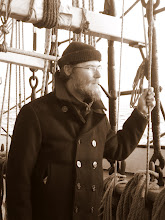Found this old book from the late 1890s as a PDF at the Internet Archive
AEtheric or Wireless Telegraphy
by ROBERT GORDON ELAINE, M.E.
An interesting look at the very early days of wireless.
These quotes are very interesting:
Scientific men are often accused of being too optimistic, of dreaming-dreams which are never likely to be realised. Some listeners, no doubt, characterised as of this nature Prof. Ayrton's memorable statement made in 1897 (when speaking of telephony):Indeed...
"There is no doubt the day will come maybe when you and I are forgotten when copper wires, guttapercha coverings, and iron sheathings will be relegated to the museum of antiquities."
" ... In that day when a man wants to telegraph to a friend he knows not where, he will call in an electromagnetic voice which shall be heard loud by him who has the electro-magnetic ear, but will be silent to everyone else. He will call 'Where are you?' and the reply will come, 'I am at the bottom of a coalmine,' 'I am crossing the Andes,' 'I am in the middle of the Pacific,' or perhaps no reply will come, and he may conclude his friend is dead."
This one embodies all the hubris of empire!
"There is no doubt that many oriental and even some savage peoples are able to convey information for considerable distances, in some unknown way, with astonishing rapidity. Many stories regarding this are related by travellers and others. One is to the effect our officers in Afghanistan were greatly puzzled as to how the intended military movements of the British could be so clearly known to the enemy in distant places so shortly after they were determined upon.
Not the swiftest horses in the British lines could have covered half the distance in the given time, and a strict watch failed to detect any heliographic or beacon-light signals. The offer of bribes was ineffective, money could not purchase the secret, nor could the fear of death extort it, it remains in the possession of the natives till this day.
It is said that on the day on which that good man General Gordon was murdered in Khartoum the event was known in the bazaars of Cairo. This may not be true, for his murderers had probably few sympathisers in Cairo ; but, if true, it is a mystery how the news travelled so quickly, seeing that there was then no railway and no telegraph to Khartoum, and even had there been a railway, a train running at 60 miles an hour would have taken some- thing like 16 hours to accomplish the journey.
It may be that the sensitive oriental nervous organisation is susceptible to etheric influences which we cannot detect, and that in this way two similarly endowed persons are affected so as to be able to emit and receive impressions more or less tangible.
That this power of rapid communication is shared to some extent by the Kaffirs is shown by a recent writer (Mr. D. Blackburn on "Kaffir Telegraphy" in the Spectator], and the Matabele have often astonished our officers in the same way. These stories have really little interest for Us to-day, except to excite wonder and speculation, since modern science has furnished us with surer and swifter, if more expensive, methods. Messages have been transmitted without the intervention of a metallic conductor for a distance of over 2,500 miles, and greater wonders are said to be in store for us."Keep your sightglass full, your firebox trimmed and your antenna tuned!
KJ



~ 0 comments: ~
~ Post a Comment ~